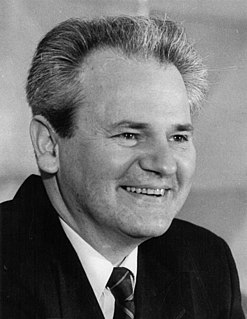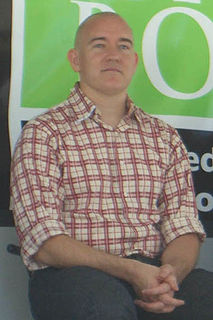A Quote by Oscar Wilde
If people are dishonest once, they will be dishonest a second time. And honest people should keep away from them. (Lady Chiltern)
Related Quotes
The laboring people should unite and should protect themselves against all idlers. You can divide mankind into two classes: the laborers and the idlers, the supporters and the supported, the honest and the dishonest. Every man is dishonest who lives upon the unpaid labor of others, no matter if he occupies a throne. All laborers should be brothers.
One percent of people will always be honest and never steal," the locksmith said. "Another one percent will always be dishonest and always try to pick your lock and steal your television. And the rest will be honest as long as the conditions are right - but if they are tempted enough, they'll be dishonest too. Locks won't protect you from the thieves, who can get in your house if they really want to. They will only protect you from the mostly honest people who might be tempted to try your door if it had no lock".
There are only two kinds of men in this world: Honest men and dishonest men. ...Any man who says the world owes him a living is dishonest. The same God that made you and me made this earth. And He planned it so that it would yield every single thing that the people on it need. But He was careful to plan it so that it would only yield up its wealth in exchange for the labor of man. Any man who tries to share in that wealth without contributing the work of his brain or his hands is dishonest.
It is possible that the scrupulously honest man may not grow rich so fast as the unscrupulous and dishonest one; but the success will be of a truer kind, earned without fraud or injustice. And even though a man should for a time be unsuccessful, still he must be honest: better lose all and save character. For character is itself a fortune. . . .
Honesty is the foundation of a sound character and the keystone of all other virtues. It is the cement without which all other redeeming features are fractured and without anchor. A dishonest person may be kind, witty, and very capable, but the strength of character simply isn't there. Honesty does not come by degrees. A person is either all honest or he is dishonest. You can be true or you can be false, but you can't be both at the same time.
Is the English press honest or dishonest? At normal times it is deeply dishonest. All the papers that matter live off their advertisements, and the advertisers exercise an indirect censorship over news. Yet I do not suppose there is one paper in England that can be straightforwardly bribed with hard cash. In the France of the Third Republic all but a very few of the newspapers could notoriously be bought over the counter like so many pounds of cheese.






































